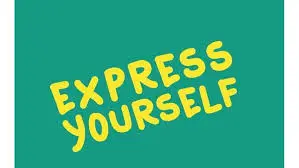
As someone who may be actively trying to lose weight, you may find yourself inundated with advice from friends, family, neighbors, coworkers and even strangers on the street on how to shed unwanted pounds. While some of this advice may be well-meaning, it’s important to recognize that not all of it will be helpful. In fact, some of it may be downright harmful to your weight loss journey.
So, how can you deal with unsolicited diet and weight loss advice that you don’t want or need? Here are some tips to help protect your sanity and your waistline.
1. Politely decline
It’s important to know that you have the right to say “no” to advice that you don’t want or need. You don’t have to justify your decisions about your own body to anyone else. When faced with unsolicited advice, a simple “thank you for your input, but I’m happy with my current approach” can be an effective way to end the conversation.
2. Set boundaries
If someone repeatedly offers unsolicited advice, it may be necessary to set some boundaries. You can let them know that you appreciate their concern, but that you’re working with a healthcare professional, and that you’d prefer to stick to their guidance for now. Alternatively, you could kindly ask them to refrain from offering you advice unless you specifically ask for it.
3. Reframe the conversation
If you find yourself constantly receiving unsolicited advice, it may help to reframe the conversation. You could explain to the person that you’re not interested in discussing weight loss at the moment, and instead suggest a different topic to focus on. Or, if you’re feeling adventurous, you could try turning the conversation around and offering the person some of your own unsolicited advice on a topic that you feel passionate about.
4. Educate yourself
One of the best ways to deal with unsolicited advice is to arm yourself with knowledge. Research different weight loss methods, and read up on the latest scientific studies. This will help you to make informed decisions about which advice is worth taking, and which is not. By becoming an expert on the topic, you’ll be better equipped to handle any unwanted advice that comes your way.
5. Trust yourself
Above all, it’s important to trust yourself and your own decisions. Remember that you know your body best, and that you’re the one who ultimately knows what works best for you. Don’t let unsolicited advice get in the way of your weight loss journey. Stay focused on your goals, and remember that you have what it takes to succeed.
In conclusion, dealing with unsolicited diet and weight loss advice can be challenging, but it’s important to remember that you have the power to decide what advice is worth taking and what is not. By setting boundaries, educating yourself, reframing the conversation, and trusting yourself, you can stay focused on your weight loss journey without getting sidetracked by well-intentioned but unhelpful advice.



